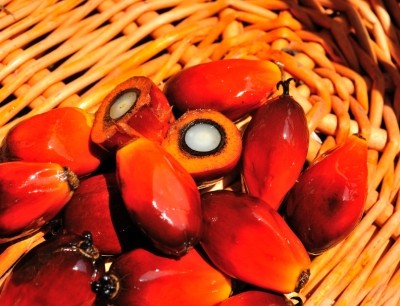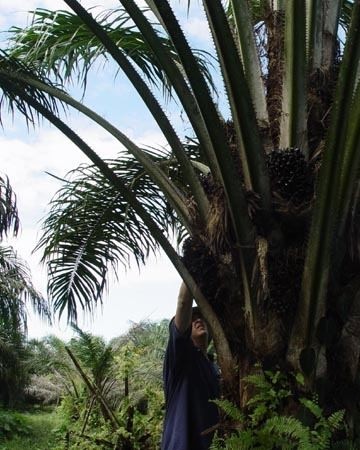Ongoing supply of RSPO-backed palm oil at risk, claims GreenPalm
The organisation behind the palm oil certificate-trading programme stressed that despite calls from consumers and the industry for an increase in supply, less than half the RSPO (Roundtable for Sustainable Palm Oil) certified sustainable palm oil produced to date has been bought.
Low take-up
Speaking to FoodNavigator.com this morning, GreenPalm general manager Bob Norman said that:
“European food and drink manufacturers have indicated a need for sustainable palm oil in their products, and Malaysian and Indonesia producers have followed suit, investing heavily to ensure they meet the RSPO criteria.
However, overall take-up of the certified palm oil is only estimated to reach 2.1 million tonnes by the year’s end, meaning the remainder of the 5 million tonnage of RSPO oil currently available will be downgraded to conventional oil and won’t be sold at a premium.
There is frustration on the supplier side. It is time for the European industry to step up to the plate and ensure a greater percentage of their palm oil needs are covered by one of the options allowed under the RSPO.”
Norman, whose book-and-claim organisation is running awareness- raising clinics on sustainable palm oil options for manufacturers at Anuga next month, argues that a lot of confusion still exists within the European food and drink sector as to how to cover their palm oil usage sustainably.
He said that GreenPalm is thus aiming to inform industry players of the options open to them under the RSPO system, and the workshops will not just be about promoting the certificate trading programme.
Norman claims the GreenPalm’s ultimate goal is to build sustainable palm oil supplies to levels that offer enough for all manufacturers to use at competitive prices.
RSPO options
The first option is to buy certified sustainable refined palm oil. This is made by plantations adhering to criteria laid down by the RSPO, segregated throughout the supply chain and fully traceable. AAK and Loders Croklaan supply this.
For manufacturers using more complex palm oil fractions, derivatives and blends, the most affordable options are the book and claim (GreenPalm) scheme or the ‘mass balance’ system.
Buyers of GreenPalm certificates can guarantee that a tonnage of oil or derivatives equivalent to the tonnage they use has been produced from sustainable sources. While buyers can't guarantee the actual oil they are buying is from an RSPO-approved plantation, they at least know the amount they use has been produced sustainably.
The third option – mass balance –combines some segregated certified/traceable sustainable oil and some standard oil.
Low value of certificates
While the current low value of GreenPalm certificates - trading at $1 for palm oil and $3 for palm kernel oil - was a concern, said Norman, the money does at least go directly back to the grower.
He explained that some processors used straight, refined palm oil for foods such as biscuits, which is easier to source. Others use stearin, palm oil's solid derivative, for spreads and margarines or palm kernel oil in confectionery.
Sourcing sustainable stearin was harder, said Norman, as it represents only 20% of derivatives produced after processing palm oil and fractionating it. Likewise, kernels are extracted at mills and send to non-segregated crushing plants. Their usage can be covered by GreenPalm.
Olein, the liquid derivative, is used for cooking oil, and represents the other 80%. "If a manufacturer wanted one tonne of sustainable stearin, they would need five tonnes of sustainable palm oil and you would need to find a home for the olein," said Norman.
Credibility harmed
Meanwhile, some food manufacturers, one leading supplier claimed in June, are using certified sustainable palm oil in their products – and making claims about it – when they are not members of the RSPO and have not have their facilities RSPO audited and certified.
Refiner AAK UK told sister site FoodNavigator-USA.com that many food manufacturers appear unaware that as users they too have to go through a full audit and certification process in order to make claims about sustainable oil and use the new logo/trademark.
AAK UK md Martin Craven said this failure to play by the rules was “harming the credibility and efforts of the sustainable palm oil movement”.
He added: “The rules exist to maintain the integrity of the system, and yet this is not always made clear from the start by suppliers. All parties of the supply chain – including the manufacturer – must now be RSPO members and go through the full audit and certification process in order to use sustainable palm oil and make claims."
But theonus was on suppliers to explain the rules to customers,stressed Craven.” It’s not right for a supplier to sell and run, leaving customers to find out the truth when they’ve already invested in marketing, packaging, policy documents and corporate social responsibility statements.
GreenPalm’s workshops are being run at Anuga in Cologne from 8 to 12 October 2011.

















